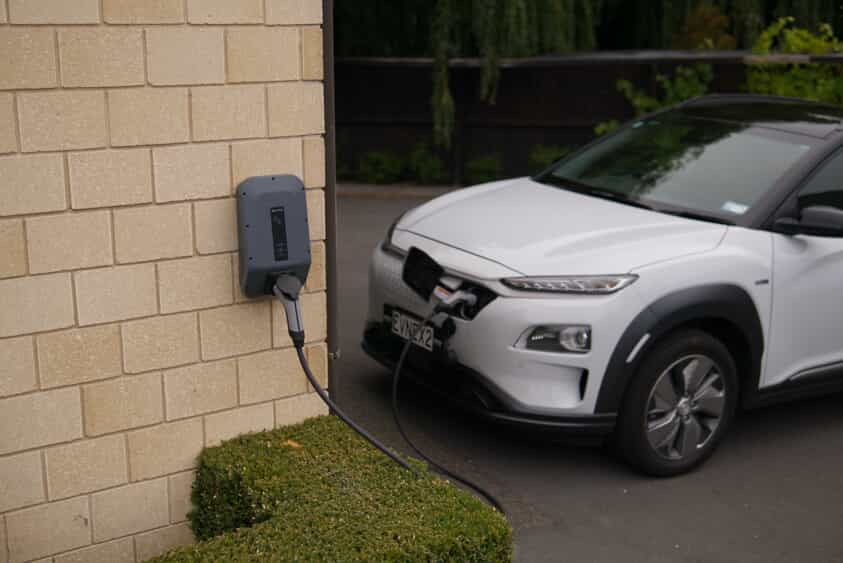Here’s How Electric Cars Can Save You Money on Taxes in California

Electric vehicles (EVs) are not only reshaping the landscape of the automotive world but are also redesigning the way we think about our finances. In the Golden State of California, the rush of the EV wave is especially palpable. With a combination of a proactive government and an environmentally conscious population, the push for EV adoption is more than just a trend—it's a movement. If you're a Californian looking to join the movement, you're in luck! This blog will shed light on the numerous tax benefits and incentives that can save you a pretty penny.
What Are the Tax Benefits of EV Cars in California?
Federal Tax Credits
The journey of financial incentives begins at the federal level. The federal tax credit for electric vehicles is a handsome amount. As of 2021, eligible EV owners can get up to $7,500 knocked off their tax bill. However, this value can vary based on factors like battery size and the vehicle's price tag. Remember to consult with a tax advisor to know exactly how much you stand to save.
California Clean Vehicle Rebate Project (CVRP)
Moving from the national to the state level, the California Clean Vehicle Rebate Project (CVRP) is another pocket-friendly incentive. Designed to promote cleaner air and to push for a more expansive EV market, CVRP offers up to $4,500 in rebates for battery electric vehicles as of 2021. Plug-in hybrids have their own set of rebates. Just ensure you meet the income limits and other criteria before you apply.
HOV Lane Access
If there's one thing every Californian driver dreams of, it's an express ticket through the notorious traffic. Enter the Clean Air Vehicle (CAV) decal program. While this may not seem like a direct money-saver, think again. Time, as they say, is money. Zipping through traffic in the HOV lane, even without a passenger, not only saves you precious time but also keeps your car from idling in stop-and-go traffic, saving on energy costs.
Search for California EV Tax Incentives Here
Utility Rate Discounts for EV Owners
Time-of-Use Rates
The savings don't stop once you leave the dealership. Your utility company might have a surprise for you too. With time-of-use rates, EV owners can benefit by charging their vehicles during off-peak hours, typically during the late night or early morning. This results in reduced electricity costs, making your EV even cheaper to operate.
Utility Rebates

Certain utility companies in California have taken the green initiative a step further. They offer rebates to EV owners with at-home chargers, reducing monthly electricity bills. These rebates, combined with the reduced costs of time-of-use rates, can amount to significant annual savings. Be sure to check with your local utility provider for any ongoing offers.
Reduced Maintenance and Operation Costs
An often-overlooked perk of EVs is their low maintenance demand. Say goodbye to frequent oil changes, transmission work, and exhaust system repairs. Electric vehicles, by virtue of their simpler mechanism, don't require the myriad of maintenance rituals that gas guzzlers do.
Moreover, electricity is cheaper than gasoline. As you switch from frequent gas station stops to plugging in at home or work, you'll notice a pleasant decline in your monthly expenses.
Other Local and Regional Incentives
Don't stop at state and utility savings! Delve into your local city or county benefits. Some California cities offer perks like free public charging, reduced registration fees, or even local rebates. To unearth these treasures, consider paying a visit to your local city hall or scouring community websites.
Why Governments Globally Offer Tax Incentives for EVs
Understanding the underlying reasons behind the push for EVs requires us to take a step back and view the situation on a global scale. Here's why governments, not just California's but around the world, are promoting electric vehicles through tax incentives and other perks:
1. Environmental Concerns
Combating Climate Change
The transportation sector is one of the major contributors to global greenhouse gas emissions. By promoting EVs, governments hope to reduce the carbon footprint and combat climate change.
Improving Air Quality
Traditional combustion-engine vehicles emit pollutants that lead to smog and deteriorate air quality. This has severe health implications, especially in densely populated urban centers. EVs, being zero-emission vehicles, offer a solution to this pressing issue.
2. Economic Reasons
Reducing Dependency on Oil
Fluctuating oil prices can wreak havoc on an economy, especially for countries that rely heavily on imports. By transitioning to electric vehicles, nations aim to reduce their dependence on fossil fuels.
Promoting Innovation & Job Creation
The EV industry, from research and development to manufacturing and infrastructure development, has the potential to create a plethora of jobs. Investing in this sector can foster innovation and drive economic growth.
3. Geopolitical Stability
Reducing Oil-Driven Politics
Historically, oil has been a catalyst for geopolitical tensions. By lessening the world's dependence on oil, countries can pave the way for more stable international relations.
4. Future-Proofing Infrastructure
Preparing for the Future
With the knowledge that fossil fuels are finite, it's prudent for governments to prepare for a future dominated by renewable energy sources. By promoting EVs now, governments ensure that their nations are ready for a sustainable future, both in terms of infrastructure and mindset.
5. Public Demand and Perception
Meeting Public Demand
As awareness about climate change and environmental issues grows, the public demand for cleaner transportation options is also rising. Governments are responding by incentivizing electric vehicle adoption.
Setting an Example
By offering tax incentives and other perks, governments can lead by example, showcasing their commitment to a cleaner and more sustainable future.
The global shift towards EVs is a multifaceted strategy aiming not only for a greener future but also a more stable and economically robust one. While California is at the forefront of this movement in the U.S., it's a reflection of a worldwide trend driven by a confluence of reasons.
In Summary
To wrap things up, buying an electric vehicle (EV) in California can save you a lot of money. With a mix of federal and state tax breaks, rebates, and other perks, it’s clear that there's a financial advantage to going electric. But it's not just about the cash in your pocket. These incentives exist because both California and countries worldwide recognize the benefits of EVs. From cutting down on pollution to reducing our reliance on oil and even improving global relationships, the push for electric cars is rooted in big, positive goals.
So, if you're thinking about getting a new car in California, going electric is a smart move. Not only will your wallet thank you, but you'll also be doing your part for the environment and the future.

